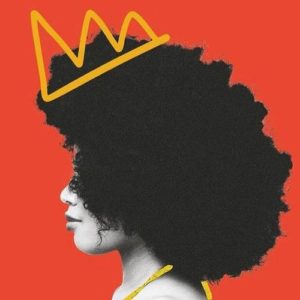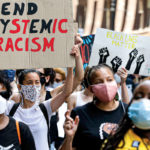Over the past year, specifically, ally has been the word to know. Social media platforms, celebrities, and more, all asking us how we can become better allies. Now, do not get me wrong, I am not mad about this (although I am incredibly frustrated that these calls to action only ever seem to be performative, as they dissipate the moment the press coverage does). However, despite all of these calls to actions, most fail to even define what being an ally truly means. So, I thought we should take some time today to fully understand what being an effective ally means.
While there are formal definitions of alliance, such as, “a person, group, or nation, associated or united with another in a common purpose (Meriam-Webster, 2021),” I view being an ally as a series of actions and morals that one holds or partakes in. Sure, agreeing that Black lives matter or morally supporting trans youth is a great first step, but I would not say it is an alliance. Here is why: yes, it is important that we hold the common belief that all human lives hold value and are worthy of respect, rights, safety, and access to basic necessities, regardless of race, ethnicity, sexual identity, degree of physical or mental ability, and so on, but having a common ground does not mean acting.
Being an ally means you are willing to step up and do the work that is asked of you. It is about acknowledging your privilege and then using it to elevate the voices and experiences of those who are harmed by the hands of these oppressive systems. It is a commitment to learning, self-development, and stepping up to demand change and use your voice and body to protect members of marginalized communities.
After I began to better understand what being an ally actually entailed, it became easier to find out what my role was and continues to be. For example, as a light-skinned, Black women, it is my responsibility to elevate the voices and experiences of women who are darker than me. It is not my place to speak on colorism in a manner that centers my experiences, but to pass the mic to those who are impacted, advocate along-side them, and ensure that they have an equal chance at receiving the opportunities I do, even if it means giving up my space (remember, it is critical to make room at the table).
Keeping this in mind, here are some more specific things that can be done that can be applicable to more than just the BLM movement:
- Decenter your feelings and comfort
- Continue self-reflection and personal education (be mindful of the resources you use)
- Teach children about the values of inclusivity, equity, and diversity, as well as accurate historical accounts
- Intervene in situations that are normalizing, glorifying, or joking about discrimination, prejudice, and harmful narratives
- Aim to call others in, not out
- Make sure your goals as an ally align with the individuals you are trying to be an ally to
- Stop supporting businesses that do not support BIPoC, the LGBTQ+ community, people of different religious backgrounds, and other members of marginalized communities
- Sign petitions and reach out to local politicians (remain informed on all elections, local and national)
- Demand people do better (i.e. my sister’s school had no plan in place to address a racist incident that occurred, so I e-mailed the principal and superintendent to demand accountability and ensure they had plans in place to do better)
- Recognize the urgency. It is okay to take moments to center your mental health, but remember this is a privilege and those who are affected by these oppressive systems are not afforded that
Remember, this is an extremely basic list. This is not the only place where you can find what must be done, as effective allies have been needed and demanded for centuries. There is always work to be done and doing something small is better than nothing at all. Never forget, we have the power to create an accepting and equitable world.
Sources:
Meriam-Webster. (2021). Ally. Merriam-Webster. https://www.merriam-webster.com/dictionary/ally.


